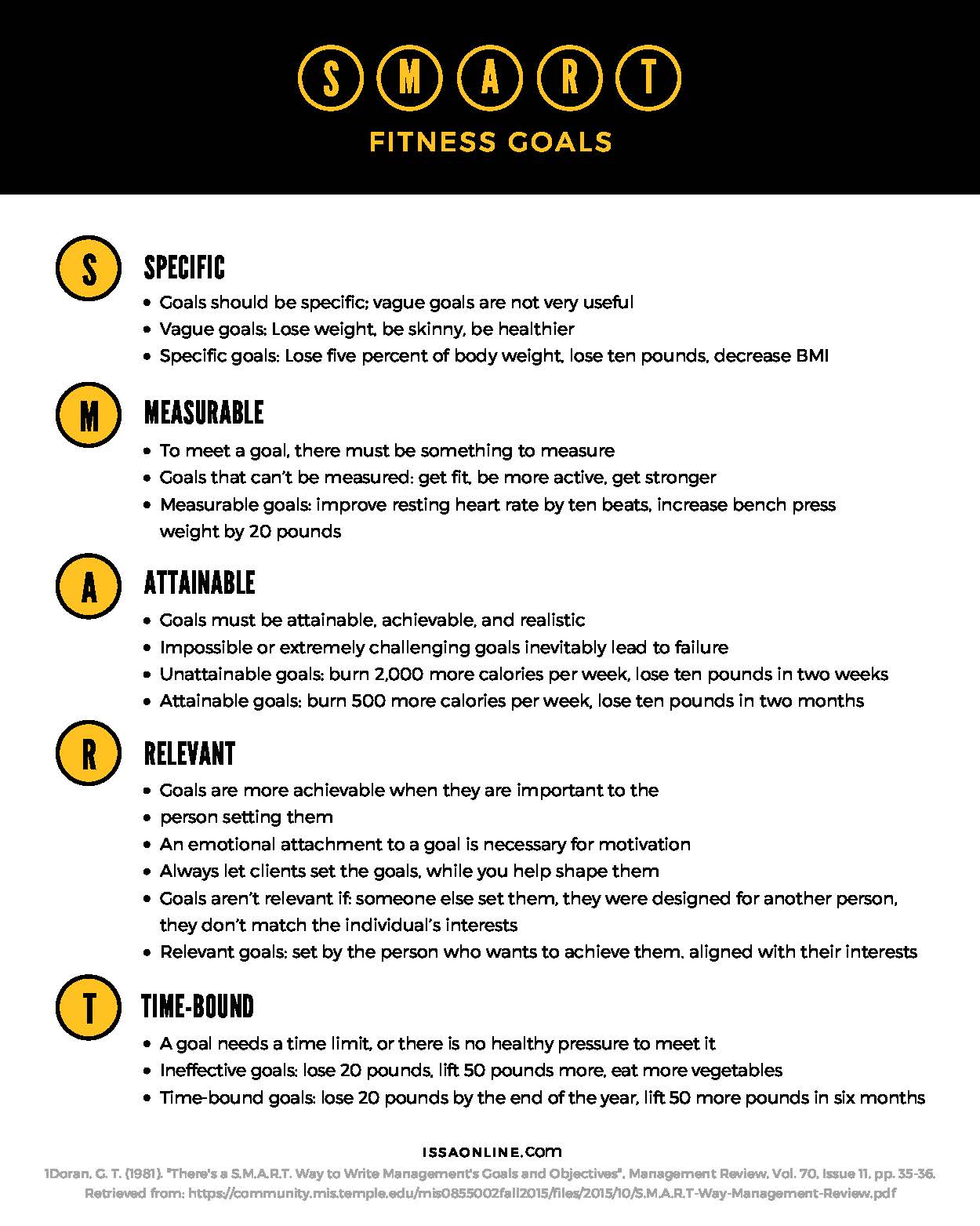AZG News Hub
Your go-to source for the latest news and informative articles.
Fitness Goals: The Good, The Bad, and The Sweat
Unlock your dream body! Discover the truth behind fitness goals—what works, what doesn’t, and how to power through the sweat.
Setting Realistic Fitness Goals: Key Strategies for Success
Setting realistic fitness goals is essential for achieving long-term success and maintaining motivation. One key strategy is to establish SMART goals: Specific, Measurable, Achievable, Relevant, and Time-bound. For instance, instead of saying, 'I want to get fit,' you might set a goal like, 'I will run 5 kilometers in under 30 minutes within the next three months.' This approach provides clarity and a clear framework for tracking progress. You can find a detailed explanation of the SMART criteria on Mind Tools.
Another effective strategy is to prioritize small, incremental changes rather than drastic transformations. Start with achievable targets, such as committing to exercise for 20 minutes three times a week. Gradually increase your workout duration and intensity as your body adapts. This method not only helps to avoid burnout but also reduces the risk of injury. For additional tips on sustainable lifestyle changes, check out the resources available on Healthline.

The Emotional Journey of Fitness: Celebrating Wins and Overcoming Setbacks
The emotional journey of fitness is a unique and personal experience that resonates differently with everyone. As you embark on this path, you'll encounter various wins that deserve to be celebrated. From achieving a personal best in your workouts to noticing physical changes in your body, these milestones can provide a significant boost to your self-esteem and motivation. According to a study from NCBI, recognizing and celebrating small victories can lead to long-term adherence to fitness routines and contribute positively to mental health.
However, the journey is not without its challenges. Setbacks, whether they stem from injury, lack of motivation, or external factors, can be disheartening. It's crucial to remember that these obstacles are a natural part of the fitness experience. Embracing setbacks allows you to cultivate resilience and learn valuable lessons that can ultimately help you grow. And as noted by Psychology Today, viewing these challenges as temporary hurdles rather than permanent failures can foster a healthier relationship with fitness and promote long-term success.
How to Stay Motivated on Your Fitness Journey: Tips and Tricks
Staying motivated on your fitness journey can be challenging, but with the right strategies, you can maintain your enthusiasm and achieve your goals. One key tip is to set realistic and achievable goals. Break your ultimate goal into smaller, measurable milestones and celebrate each success along the way. For instance, if your goal is to run a marathon, you might start by aiming to run a 5K first. Additionally, consider keeping a fitness journal to track your progress. Documenting your workouts, nutrition, and mood can provide insight into what works best for you. You can find more about setting fitness goals at Healthline.
Another effective strategy is to join a fitness community. Surrounding yourself with like-minded individuals can offer support and accountability. Whether you choose to participate in local workout classes, join online forums, or engage with social media fitness groups, being part of a community can significantly impact your motivation. Additionally, try to find a workout buddy who shares similar goals; exercising together can inspire you both to push harder. For further tips on building a supportive fitness network, check out this article on Verywell Fit.